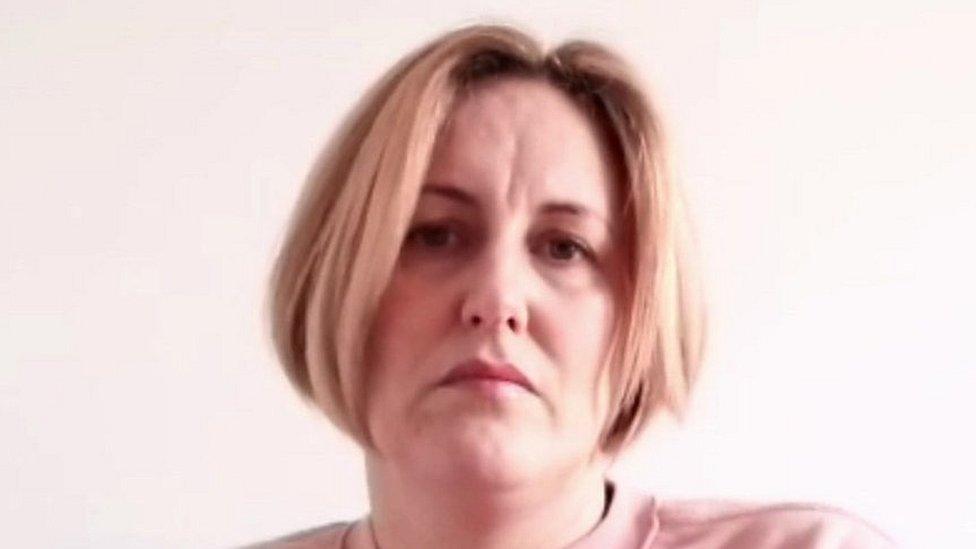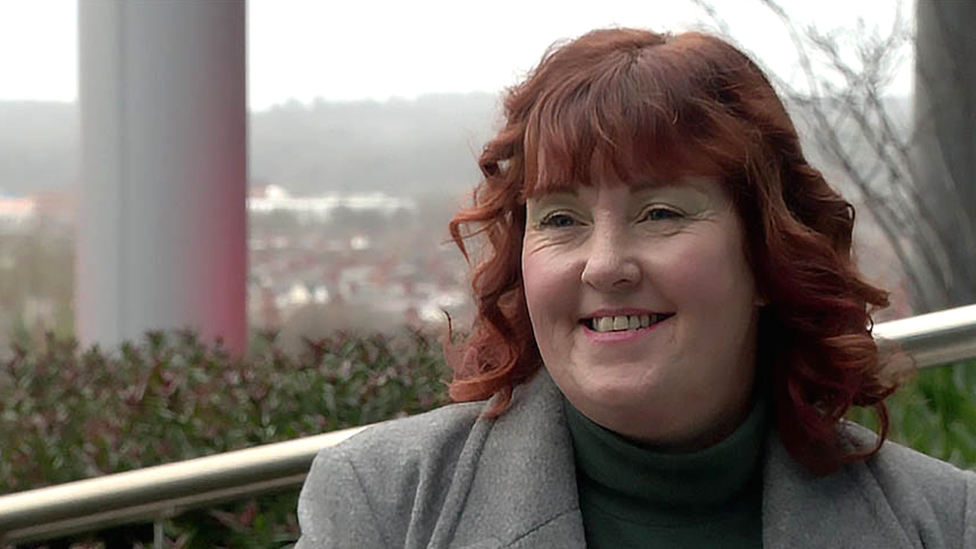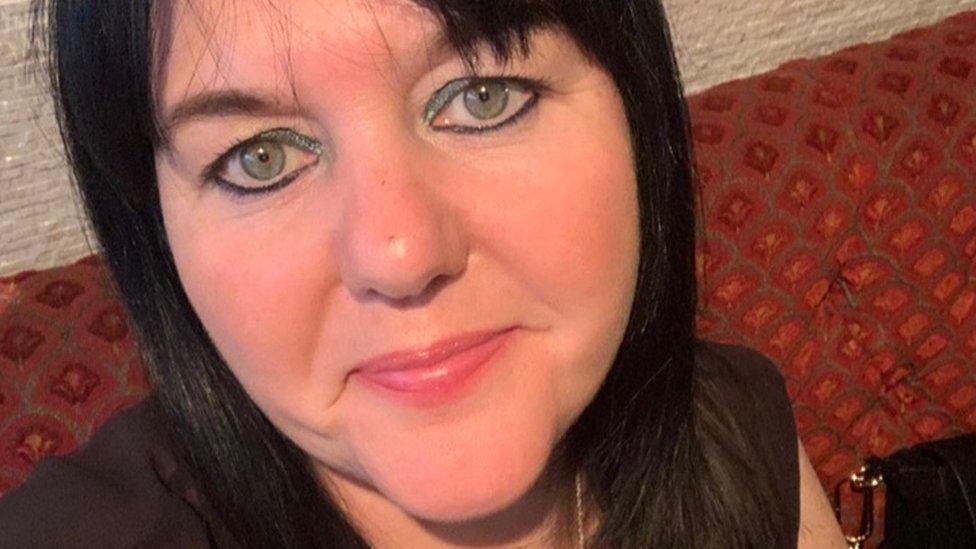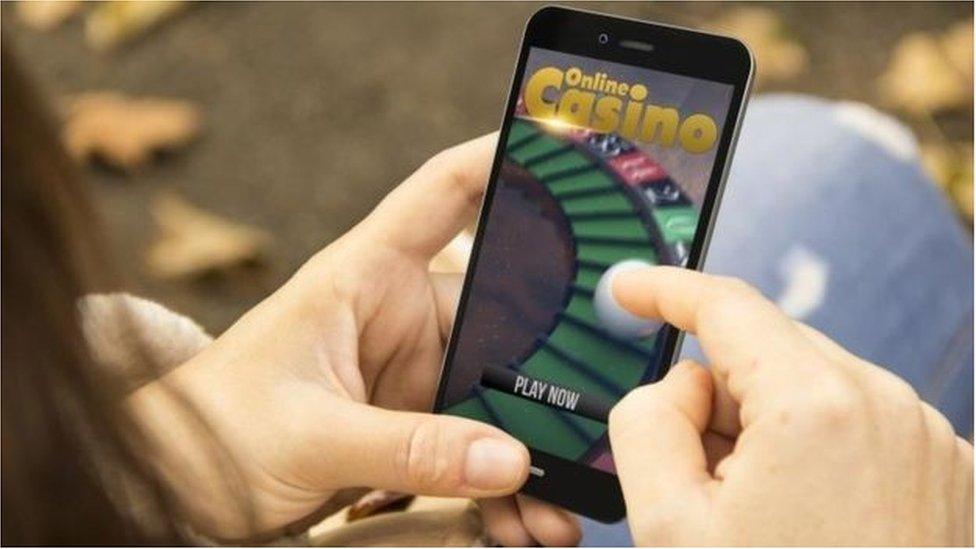St Helens ex-gambler backs NHS calls to stop betting ads aimed at women
- Published

Kelly Field is warning of the dangers of online betting after she has turned her life around
A woman who lost £70,000 gambling online is backing an NHS campaign to stop betting adverts targeting females.
Kelly Field, from Merseyside, started playing bingo in 2012 but quickly moved on to play online slot games.
She said it consumed her whole life and when she lost £1,600 in an hour she attempted to kill herself before she got help to recover from her addiction.
The industry's Betting and Gaming Council said it had taken a "number of steps" to promote safer gambling.
The NHS Northern Gambling Service said advertisers use bingo to lure women into playing more addictive slot games.
"Bingo is being used as the gateway in and they make it very appealing - usually using more female-orientated daytime programmes to advertise on," Matthew Gaskell, from the NHS service, told BBC North West Tonight.
"But bingo then becomes gateway to more harmful products and women are moving very quickly over to those and many can get into trouble and get addicted very rapidly."
It comes as an awareness campaign, launched by charity Gamble Aware last month, estimated that one million women in the UK were at risk of harmful gambling.
'Get into trouble'
Ms Field, from St Helens, said she was gambling for eight hours a day and it "consumed every part of my life".
She said losing the £1,600 left her "defeated, disgusted and ashamed and [I] just knew there was no chance of getting the money back".
She said the suicide attempt prompted her to seek help and she has now recovered and wants to raise awareness of the addiction.
Ms Field, 40, said she was not against gambling if done sensibly.
"But there's people like myself that sadly end up with a gambling addiction," she said.
"If you are spending too much time online and you're spending too much money, or money that you've not got, that's quite an indicator you should really come off and reach out for help."

Help and support
If you're affected by any of the issues in this article, you can find details of organisations who can help via the BBC Action Line.

The Betting and Gaming Council, which represents gambling firms, said in a statement its "largest members pledged an increase of £100m between 2019 and 2023 for research, education and treatment services to be administered by independent charities".
"According to Gambling Commission statistics released today the rate of problem gambling has fallen from 0.6% 18 months ago to 0.3%, while for women it remained low at 0.2%," it added.
"Although millions of people enjoy betting and gaming safely and responsibly - we believe one problem gambler is still one too many.
"That's why we have taken a number of steps to further raise standards and promote safer gambling - including for women gamblers."
The government is considering reform plans in its Gambling Act Review.

Why not follow BBC North West on Facebook, external, Twitter, external and Instagram, external? You can also send story ideas to northwest.newsonline@bbc.co.uk
- Published11 February 2022

- Published31 January 2022

- Published7 May 2021

- Published21 May 2020
